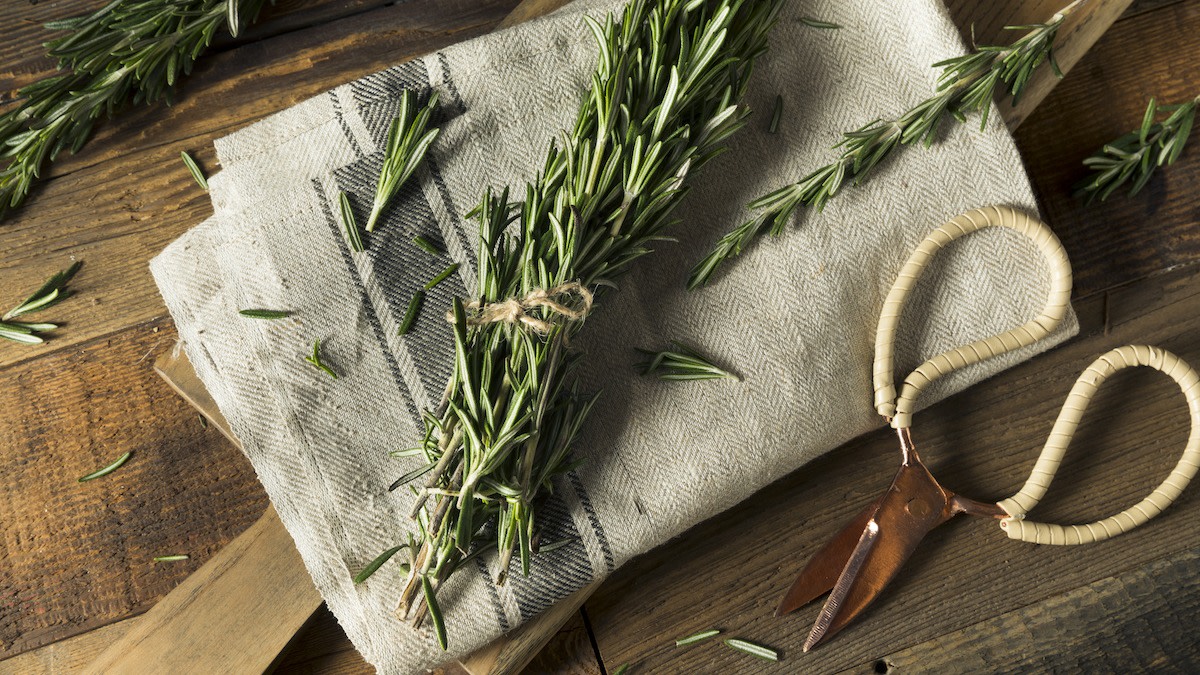Rosemary Companion Planting: 5 Plants to Pair With Rosemary
Written by MasterClass
Last updated: Jun 7, 2021 • 3 min read
Rosemary is a good companion plant to grow alongside many types of vegetables. As with many aromatic herbs, rosemary wards off pests and helps keep your garden thriving.
Learn From the Best
What Is Companion Planting?
Companion planting is a time-tested gardening method that enriches and protects vulnerable crops. Farmers and gardeners plant specific crops near each other in order to deter pests, attract beneficial insects, and stimulate growth.
What Are the Benefits of Companion Planting?
Companion plants will either help a specific crop grow or will grow better beside a specific crop, and can do many support jobs in the garden:
- 1. Repel insect pests. Cabbage worms, cucumber beetles, Mexican bean beetles, carrot flies, cabbage moths—all kinds of pests can plague vegetable gardens. Many companion plants (like marigold flowers, catnip, and rue) repel specific pests and should be planted near certain crops to keep them pest-free.
- 2. Attract beneficial insects. Pollinators like bees and ladybugs can use a little encouragement to visit vegetable gardens and pollinate the crops. Gardeners often plant attractive plants like borage flowers to encourage pollinators to visit.
- 3. Improve soil nutrients. When crops grow, they take up valuable nutrients from the soil—leaving the gardener to do a lot of work at the end of the season to renew the soil’s nutrients. However, there are many companion plants (like bush beans and pole beans) that add nutrients like nitrogen back into the soil, helping keep other plants healthy.
- 4. Encourage faster growth and better taste. Many companion plants (like marjoram, chamomile, and summer savory) release specific chemicals that encourage faster growth or better taste in the plants around them.
- 5. Provide ground cover. Plants that spread low across the ground (like oregano) serve as a blanket over the soil, protecting it from the sun and keeping it cooler for plants that benefit from lower temperatures.
- 6. Provide necessary shade. Plants that grow tall and leafy (like zucchini and asparagus) can provide welcome shade for sun-sensitive plants beneath them.
- 7. Serve as markers. When growing slow-growing plants, it can be difficult to tell where the rows will be while you’re waiting for the seeds to sprout. Gardeners often use fast-growing plants (like radishes) interspersed with the slow growers in their rows to delineate where the slow growers will be.
5 Companion Plants to Grow With Rosemary
Planting rosemary in your garden is beneficial for the following plants:
- 1. Brassicas: Insects like cabbage moths lay eggs on plants in the cabbage family (also known as brassicas). These eggs hatch into caterpillars—called cabbage worms or cabbage loopers—that can obliterate your entire cabbage patch in a matter of days. Rosemary’s aroma maks the scent of brassicas and keeps pests at bay. Plant rosemary near any plants in the cabbage family: cabbage, broccoli, cauliflower, kale, Brussels sprouts, turnips, kohlrabi, rutabaga, and radishes.
- 2. Beans: In the United States and Mexico, a pest known as the Mexican bean beetle often plagues bean crops. Mexican bean beetles devour bean leaves, preventing bean plants from producing energy through photosynthesis. Rosemary makes a perfect companion plant to beans because its spicy, earthy aroma overpowers the beans’ scent, effectively hiding them from Mexican bean beetles.
- 3. Carrots: One of the biggest complications when growing carrots is their tendency to attract carrot flies. These flies use their sense of smell to find carrots and lay eggs in the surrounding soil—eggs that hatch into maggots, which then feed on the carrot roots’ outer layers. To prevent this, you can plant rosemary nearby to mask the smell of the carrots. If you don’t wish to plant a full rosemary bush, simply spreading rosemary cuttings around the carrot tops may be enough to deter carrot flies.
- 4. Sage: Companion planting rosemary with sage in your herb garden can improve the overall health of sage and also magnify its flavor. Sage is the only herb that tends to flourish alongside rosemary.
- 5. Parsnips: Parsnips are a root vegetable, and like carrots, they tend to attract carrot flies. As with many other vegetables, parsnips benefit from rosemary's powerful scent.
Learn More
Grow your own food with Ron Finley, the self-described "Gangster Gardener." Get the MasterClass Annual Membership and learn how to cultivate fresh herbs and vegetables, keep your house plants alive, and use compost to make your community - and the world - a better place.
